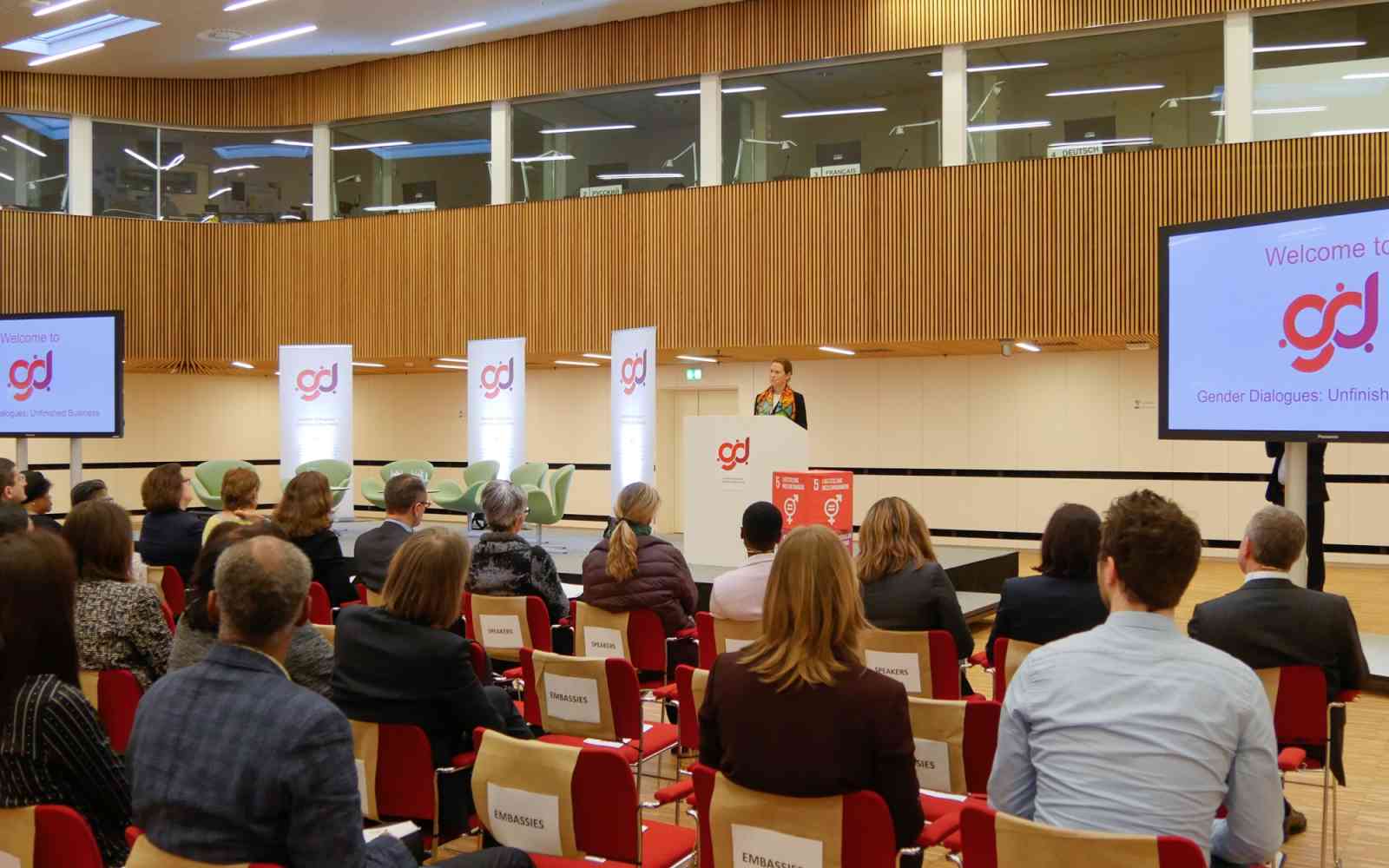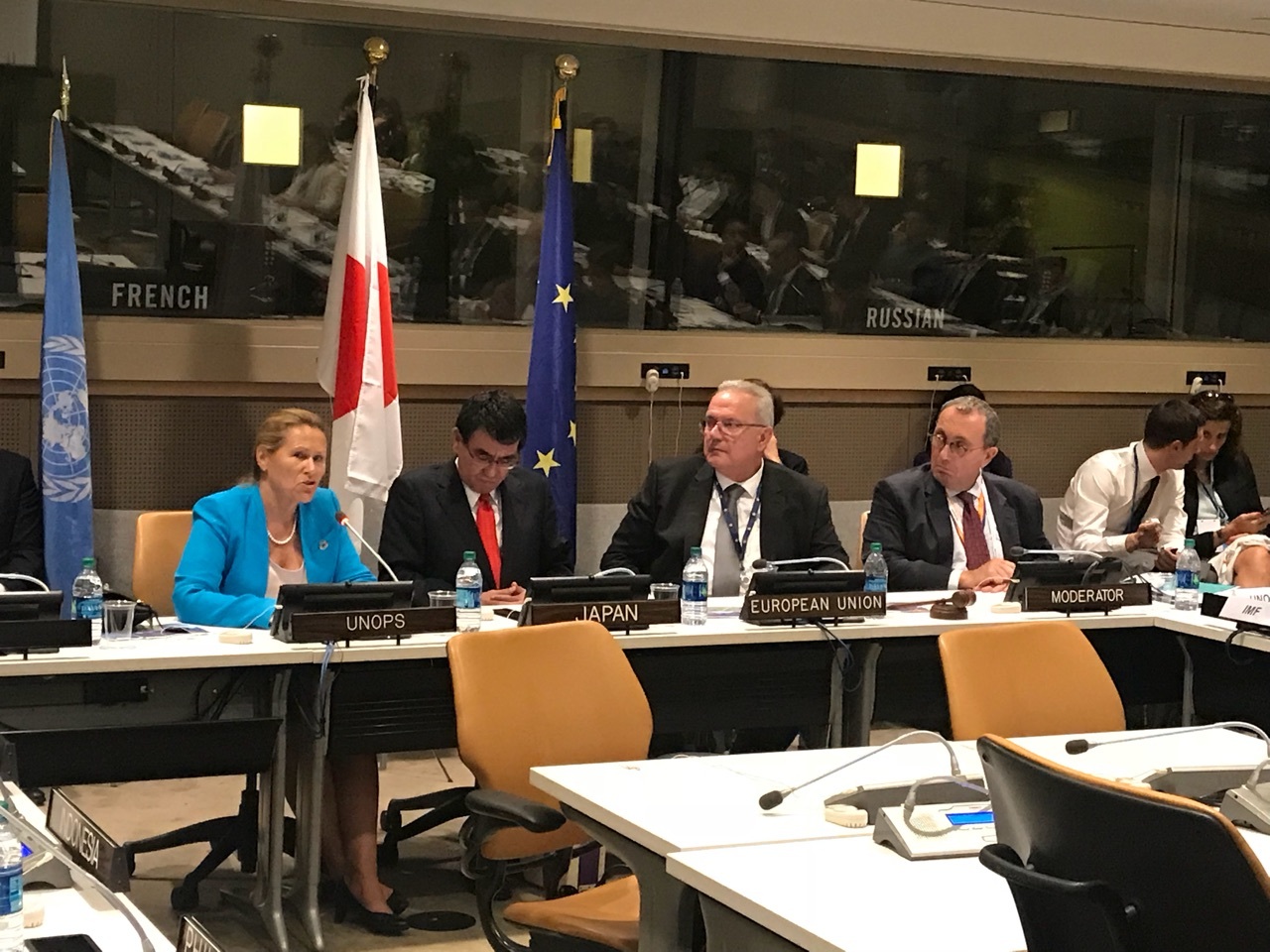The United Nations Office for Project Services (UNOPS)
How can infrastructure better contribute to the achievement of SDG 5 - Gender Equality?
Statement by Grete Faremo, Under-Secretary-General and UNOPS Executive Director
11 March 2019, 15:00-16:15, UN Headquarters, Conference Room 12, New York
[Check against delivery]
On behalf of UNOPS, I am pleased to share this stage with our co-organizers. The representatives of the governments of Sri Lanka, Estonia and the Swedish International Development Cooperation Agency (SIDA) are co-organizing this side event with us and we are pleased to have the Chair of the CSW with us today, Ambassador Byrne Nason. Welcome to you all.
We are here to address critical gender inequalities, and in particular those that follow from choices and design of infrastructure.
Much of the conventional infrastructure is gender blind. Blind to the inequalities it creates.
And because infrastructure is built to last, it can discriminate for decades.
Last year, a report from UNOPS and the University of Oxford found that 92 per cent of SDG targets are influenced by the availability of infrastructure.
Yet, the burdens from poor infrastructure falls mainly on women.
Water collection falls primarily on millions of women.
Where and how we place the well, tap or fountain matters.
Is it far? Is it safe? Is it outside a bar? Is there light in the evening? Is it working?
If anything in the world should meet women's needs, it is maternity clinics.
If they do not, people give birth at home, which increases the dangers for mothers and newborns of dying.
The construction of clinics must observe dignity. We must protect mothers when they are at their most vulnerable. Hands must be washed. Immunization must be performed. Water must be safe.
Much of the same goes for sanitation. And for schools.
Harassment of girls and women in daily situations is a global problem. Good planning and protection of facilities together with water and electricity are essential.
At UNOPS, we are dedicated to improving the way infrastructure is planned, delivered and managed to ensure that it is sustainable, resilient and, most importantly, that it is inclusive and gender sensitive.
We are the only UN entity specifically mandated in infrastructure.
We have developed manuals for our infrastructure projects that take experience into account so we do not make the same gender blind mistakes twice, but instead spearhead gender-sensitive solutions.
We cooperate with many, but not least of which with the University of Oxford, to increase our knowledge and pioneer the future.
In recent years in Afghanistan, we implemented a project to reduce poverty in rural areas, across four provinces in the country.
This aimed to improve access to economic and social services, through building rural infrastructure – mainly roads – and through developing the capacity of public institutions.
We can see many critical benefits:
- improved access to health services and schools
- lower response time for doctors
- increased mobility
In some rural communities, shorter journey times mean more access to jobs, to social interactions, and more opportunities to buy and sell goods.
When it came to education, households with the number of girls enrolled in school in this area increases - 45 per cent of households rather than 35 per cent.
And in the case of preventive health services, more women had access to care from trained health workers, than those outside the project area. Results were similar with maternal and child health nutrition advice, and access to trained birth attendants.
And when family planning was examined, 45 per cent of those who had benefited from the project had adopted family planning measures, compared with 25 per cent in the comparison group.
In Kenya, we recently retrofitted over 60 rural health centers with green energy solutions, providing electricity and hot water.
Mothers in the target areas now have access not just to proper health facilities, but also adequate health services.
Health care workers no longer have to deliver babies in the middle of the night with only the light from the torch on their cell phones.
Distinguished colleagues,
We called this meeting because the tasks before us are important.
They potentially affect billions of people. They are in need of greater political attention.
And they are critical to our work towards the Sustainable Development Goals, and an inclusive and resilient future.









